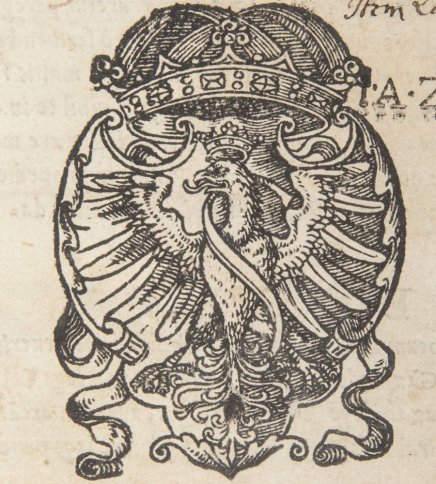FATA LIBELLI – the destiny of books and their owners
30.07.2019-12.01.2020
Habent sua fata libelli – Books have their destiny – as the ancients used to say, books travel and roam, often against their owners’ will. Sometimes, we are able to trace their routes between consecutive readers.
For centuries books were valuable – worth protecting from getting stolen, so they were marked with various ownership labels: notes, bookplates, stamps, and supralibros. The old formula: ex libris … (from the books) gave the name to a small graphic symbol, also known as a bookplate, pasted inside a book’s cover, and supralibros applied to the cover. Those small woodcuts and copperplates, as well as special bookbinder’s tools, were mostly owned by bibliophiles, who would sometimes collect great numbers of books. Standing out among them are royal collections belonging to kings Sigismus Augustus and Stanisław August, as well as the relics of the first Polish public library: the Załuski Library.
However, some old prints contain more detailed information: personal notes regarding the fortune of family members, particular circumstances in which the given book was acquired, or local events. On the pages of old books, we find their authors’ dedications, memorial notes, parents’ notes for growing up children, pro memoriae notes and addenda, such as adding information about the newest events to historical work. Wide margins of printed scholar books were used by academic professors to write down their thoughts and comments on different lectures. Such entries allow us to get to know more about old book owners, who lived several hundred years ago and used those private notes to reveal details of their everyday life and their reactions to important events. In old prints kept at museums, we will find a father’s inscription for his daughter, who in the seventeenth century – is the third woman in the family – inherited a Bible, the so-called Brest Bible, published in 1563; daily records of farm activities and travels between estates managed by a wealthy noblemen, or a nobleman-soldier’s written statement of finding a book in the fieldwork – a book about military issues.
Books, even those belonging to especially well-cared-for libraries, after some years were found in different collections – private, church- or state-owned. Part of them shared the fate of their owners: they traveled voluntarily, or were forced to move to faraway places, some – the borrowed ones, were never returned to their mother libraries, and others were stolen. Many volumes contain a warning: Who steals this book, shall lose their hand – that was supposed to protect the book from thieves. The exhibition features collections of old books – witnesses of history that used to be scattered but have been brought together again.
Agnieszka Perzanowska
The Hutten-Czapski Museum
ul. Piłsudskiego 12, 31-109 Kraków- Monday: closed
- tue : 10.00-18.00
- wednesday-sunday: 10.00-16.00